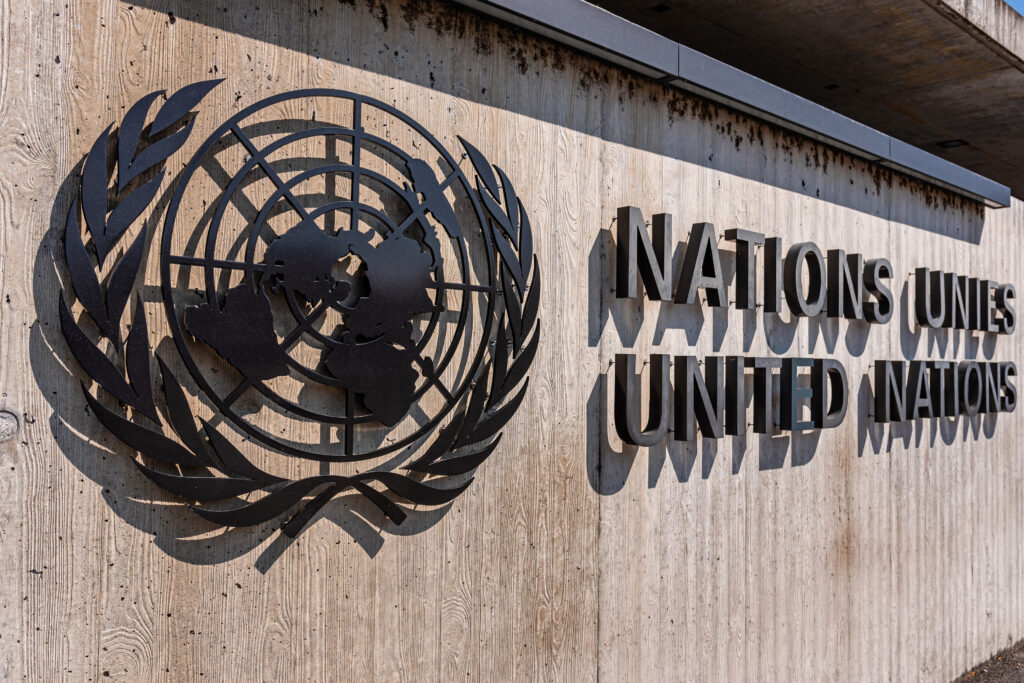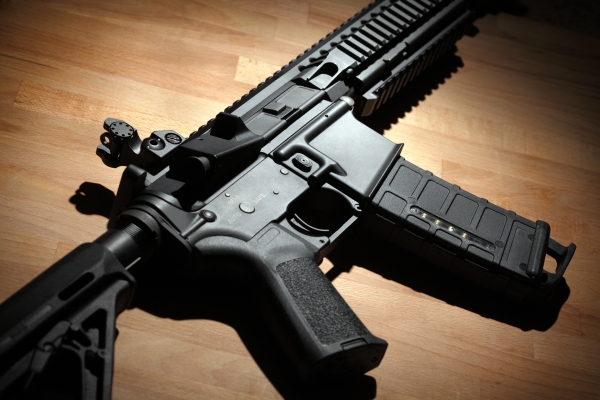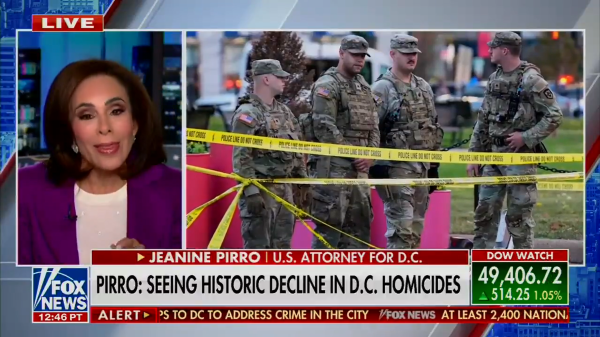For more than a decade, the National Association for Gun Rights has sounded the alarm about a growing threat to national sovereignty, one that rarely makes headlines but carries profound implications for the future of lawful gun ownership.
That threat is the United Nations Small Arms Treaty (ATT), a seemingly well-meaning agreement that, in reality, is a Trojan horse for a sweeping global gun control agenda.
The ATT didn’t emerge overnight. The groundwork was laid as far back as the late 1990s, when the European Union led the charge with its 1998 Code of Conduct on Arms Exports—the first major regional attempt to establish international norms for gun control. During the Clinton administration, U.S. diplomats engaged in early discussions on global arms controls, helping to legitimize the push that would eventually culminate in the adoption of the ATT in 2013. From the very beginning, gun control advocates worldwide viewed the ATT as the key instrument to advance their long-term agenda.
Proponents of the ATT claim it’s designed to stop the illicit arms trade and keep weapons out of the hands of warlords and terrorists. But the treaty’s language — vague, expansive, and ripe for abuse — opens the door to international meddling in sovereign nations’ firearms policies. Even worse, it gives globalist bureaucrats and well-funded anti-gun NGOs a platform to pressure governments into adopting restrictive gun control measures — measures that their own citizens would never approve through democratic means.
The danger is real. It’s time to expose the real goal of the UN Arms Treaty before it’s too late.
The UN Small Arms Treaty: A Brief Overview
Adopted by the UN General Assembly in 2013 and entered into force in 2014, the UN Small Arms Treaty was marketed as a groundbreaking step to regulate the international trade of conventional arms.

While the treaty is formally known as the UN Arms Trade Treaty (ATT), gun rights activists often refer to it as the “UN Small Arms Treaty” — and for good reason. Article 2, Section 1(h) of the treaty explicitly includes “small arms and light weapons,” the very firearms owned by millions of peaceable citizens, as a covered category of conventional arms. In fact, this is where much of the treaty’s focus lies, despite state-funded rhetoric about tanks and warships. The treaty also asserts a need for strict management of ammunition for firearms, even as small as the ammunition used in most Americans’ everyday carry.
Its stated objectives include:
- Reducing the risk that arms transfers contribute to human rights abuses
- Promoting “transparency” and international cooperation
- Establishing common international standards for arms exports, imports, and transfers
On its surface, the ATT appears to focus solely on cross-border arms trafficking. But a closer look reveals that it requires signatories to regulate their entire domestic arms industries and to report on internal policies and firearms transfers.
That’s where the problems begin.
For those who want to see the treaty for themselves, the full text is available here: UN Small Arms Treaty – English Text (PDF)
A Global Gun Control Framework — Hiding in Plain Sight
While the ATT doesn’t explicitly require countries to ban or restrict civilian firearms ownership, it provides a legal and political framework that combines to form a full-fledged “Disarmament 101” course for global gun control activists.
Consider Article 5 of the treaty, which mandates that each State Party establish and maintain a “national control system” to implement the treaty.

Article 12 requires detailed record-keeping on “authorized conventional arms transfers,” including small arms, for at least 10 years. In fact, the treaty mandates detailed “end user” documentation (Articles 7-9), providing a clear path to establish registration systems that track who buys what firearms and where they end up. While billed as a measure to prevent “diversion,” it provides an ideal mechanism for future firearm registries and government control over lawful gun ownership.

On top of this, Article 13 compels governments to submit annual reports to the UN Secretariat on their arms transfers and control measures.

In practice, these provisions create international pressure for governments to track, report, and ultimately restrict the flow of firearms within their own borders.
Many of the groups that lobbied hardest for the ATT, such as the International Action Network on Small Arms (IANSA), Control Arms, and Amnesty International, openly advocate for strict limits on civilian gun ownership. Their strategy is clear: use the ATT to build “international norms” that stigmatize gun ownership and push nations toward restrictive policies, even if those policies violate their constitutional traditions or the will of their people.
Even more concerning, the treaty can be amended without the unanimous consent of all parties. Under Article 20, treaty amendments can be adopted by a three-quarters majority of the State Parties present and voting. And each year the state parties to the ATT meet, the UN’s expectations for arms seizures and information sharing rise astronomically. This means radical changes, such as further tightening civilian gun ownership standards or expanding reporting requirements, could be forced upon compliant nations without their consent. And with authoritarian regimes like China having signed the treaty in recent years, the risk of hostile nations pushing anti-gun amendments has only grown.
Undermining National Sovereignty — One Report at a Time
The most dangerous aspect of the UN Small Arms Treaty is its corrosive effect on national sovereignty.
Firearms policy is — and must remain — a matter for sovereign nations to decide. Yet by committing to the ATT’s reporting requirements and “harmonization” pressures, countries effectively open the door to UN oversight of their domestic gun laws.
This is not some paranoid fantasy. We’ve already seen how treaty obligations and international pressure can reshape national firearms policies:
- European Union: The EU Firearms Directive, updated in 2017, imposed sweeping restrictions on gun ownership across member states. EU bureaucrats cited international obligations and “global norms” — including those established under the ATT — to justify these changes, even over the objections of countries with strong gun cultures.
- Australia: Though already a highly restrictive environment for gun owners, Australia’s 2018 National Firearms Agreement update incorporated many ATT-inspired provisions, further tightening controls on peaceable gun owners under the guise of international compliance.
- Latin America: In countries like Mexico and Brazil, anti-gun NGOs have used ATT mechanisms to demand stricter gun control laws, arguing that current policies are out of step with the treaty’s “spirit.”
Once a nation begins submitting reports and aligning its firearms policies with ATT standards, it invites endless political and legal pressure to fall in line with the UN’s anti-gun agenda.
The United States: A Critical Line of Defense
In the United States, the fight over the UN Small Arms Treaty has been fierce from the very start.
The Obama administration signed the treaty (signed by John Kerry, then U.S. Secretary of State) in 2013, but strong opposition from gun rights groups, constitutional scholars, and a bipartisan coalition of U.S. Senators prevented it from ever advancing toward ratification.

Under the Constitution, no treaty can take effect domestically unless it secures a two-thirds vote in the Senate, and that high bar has served as a critical line of defense. Later in 2013, 58 Senators signed a letter opposing the ATT, and the Senate passed a budget resolution that explicitly prohibited any funding for its implementation and advancement. Congress has repeatedly renewed these funding bans, making it clear that the treaty has no place in U.S. law.
But here’s the problem: Democratic administrations have ignored that message. Despite lacking Senate approval and being defunded by Congress, the Obama and Biden State Departments continued to send both U.S. delegations and taxpayer dollars to ATT meetings, participate in reporting frameworks, and signal diplomatic support for the treaty. In short, while the treaty isn’t ratified or funded, parts of the federal bureaucracy continue to act like it is. That’s not just dishonest, it’s unlawful.
So, despite the Senate’s firm stance and overwhelming public opposition, Democratic administrations, anti-gun NGOs, and the usual gang of swamp-dwelling bureaucrats have worked quietly behind the scenes to keep the treaty alive and inch toward compliance with its mechanisms.
They know that once a treaty like this gets embedded in agency culture and international “norms,” reversing course becomes much harder.
That’s why President Trump’s move in 2019 to formally withdraw the United States’ commitment from the treaty was so important. Standing before gun owners, he declared the ATT “a threat to American freedom” and vowed that “we will never allow foreign bureaucrats to trample on your Second Amendment.”

Legally speaking, this step – often referred to in the media as “unsigning” the treaty – carried real weight. Under Article 18 of the Vienna Convention on the Law of Treaties, a country that signs but does not ratify a treaty is still obligated not to act against its “object and purpose.” But by formally notifying the United Nations Secretary-General that the U.S. no longer intended to become a party to the treaty, the Trump administration removed that legal obligation, freeing America to disregard the ATT entirely in practice.

Of course, without a resolution passed by Congress, the United States’ signature still remains in the historical record, and nothing stops a future administration from moving forward with the treaty. They’d have to express “consent to be bound by the treaty” again, and frankly, that would be a simple and attractive task for an anti-gun presidency. Understanding this, you can bet the gun control lobby is already plotting for just that opportunity.
So while Trump’s action was a significant victory for American sovereignty, the fight is far from over. Globalist NGOs, UN officials, and anti-gun advocates continue to pressure the United States to re-engage with the treaty. And with the wrong President in office, they could pledge to ratify it, or worse, implement its provisions through executive action or regulatory fiat without ever seeking Senate approval.
That’s why American gun owners must stay vigilant. The ATT may be on ice for now, but the forces behind it are patient, well-funded, and determined. We can’t afford to let our guard down, nor let up the pressure.
The Slippery Slope of International Norms
Supporters of the ATT often claim that the treaty is legally non-binding, a voluntary agreement that respects national sovereignty.
But anyone familiar with international law knows that this argument is disingenuous.
The creation of international “norms” through treaties like the ATT is a deliberate strategy. Once a critical mass of countries adopt restrictive gun laws in the name of ATT compliance, globalist organizations and domestic anti-gun activists use those norms to pressure other nations to follow suit.
We’ve already seen this play out in the fields of environmental regulation, “hate speech” laws, and data privacy. Gun control is no different.
Over time, failure to align with ATT norms will be portrayed as evidence of backwardness or irresponsibility on the world stage, providing ammunition for domestic gun grabbers and international busybodies alike.
And make no mistake, the treaty’s most ardent supporters would love nothing more than to engineer a constitutional crisis, pitting the Second Amendment against the Treaty Clause of the Constitution. Their goal is to subvert the right to keep and bear arms through the backdoor of international law, using the ATT to create “obligations” that activist judges might one day cite to justify restrictions that Congress and the American people would never approve.
Why This Matters to Every Gun Owner
Too many gun owners, particularly in the United States, assume that international treaties like the ATT are abstract concerns with little relevance to their daily lives.
This is a grave mistake.
The global gun control movement is plentifully financed, highly coordinated, and deeply embedded in institutions like the United Nations. Its leaders understand that advancing their agenda through domestic legislatures alone is a slow and uncertain process. International treaties offer a backdoor path to their ultimate goal: a world where civilian gun ownership is severely restricted, if not outright banned.
If you value your right to keep and bear arms — whether in America, Europe, Africa, or Asia — you must not ignore this fight.
Stopping the UN Small Arms Treaty and its creeping influence is not just about protecting legal gun ownership. It’s about defending national sovereignty, democratic self-governance, and the principle that free people, not foreign bureaucrats, should decide their own laws.
A Voice for Sovereignty at the Heart of the UN
While many globalist activists and government officials gathered in Geneva last fall to plot the next phase of international gun control, one voice stood firmly against them.
National Association for Gun Rights (NAGR) President Dudley Brown traveled to the UN’s annual Arms Trade Treaty Conference of State Parties (CSP) in Geneva and delivered the hardest-hitting pro-gun speech the conference has ever seen.

Speaking directly to the assembled diplomats, many of whom represent governments hostile to civilian gun ownership, Brown pulled no punches.
He reminded them that the United States is home to more than 500 million civilian-owned firearms, including millions of so-called “assault weapons.” He challenged the very notion of a state monopoly on arms, declaring:
“How does the UN ATT deal with a nation with not only so many small arms, but whose very foundation and national identity is wrapped around armed defiance?”
Brown exposed the absurdity of countries like Mexico suing U.S. gun manufacturers to cover for their own corruption-fueled violence, and he didn’t hesitate to call out regimes like North Korea and China for their brutal repression of citizens who dare to dissent.
But perhaps the most powerful moment came when Brown described the irreversible tide of technological change undermining the very premise of global gun control:
“The state monopoly on the tools of liberty is now over. Using plans downloaded on the internet, people are printing firearms in their homes and using them as a rudder to chart the course against oppression.”
In an age of 3D printing and decentralized information, Brown argued, no government, not even the United Nations, can hope to fully control or eliminate the right of the people to keep and bear arms.
He closed his remarks with a stirring call to action:
“Good men of the world: If you have arms, don’t give them up! Jealously protect and defend your ability to resist — they will be what stands between you and self-determination.”
The speech drew sharp reactions from gun control advocates in the room, but it also inspired pro-freedom voices around the world. NAGR released the full video of the address shortly after the conference, helping expose the true agenda of the UN ATT to a broader audience.
You can see the full video in the X post below:
If you had 3 minutes to say exactly how you felt about the U.N. to their faces, what would you say?
— National Association for Gun Rights (@NatlGunRights) August 21, 2024
That’s the question our team posed to NAGR president @gunrightsprez.
THIS was his answer. 🎤 pic.twitter.com/PqddEgzzjW
In standing up to the bureaucrats of Geneva, NAGR reminded the world that the fight for gun rights is about far more than sporting traditions or personal defense; it’s about the right of free people to chart their own destiny without the permission of those who seek to rule them.
The Fight Ahead
Gun owners and national leaders who care about sovereignty must continue to expose the true agenda behind the ATT and resist its implementation at every turn.
In the U.S., this means:
- Pressuring Congress, specifically the United States Senate, to permanently block ATT ratification by disposing of the original treaty instrument (Treaty Document 14-114) presented to the Senate by President Obama in the waning days of his Administration.
- Demanding that future administrations reject any effort to ratify or re-signal intent to become party to the treaty.
- Holding elected officials accountable for defending American gun rights from globalist encroachment.
Internationally, it means building alliances with pro-sovereignty movements, exposing the anti-gun bias of UN bureaucrats, and helping smaller nations resist the pressure to conform to the ATT’s globalist vision.
The bottom line is this: the fight for the right to keep and bear arms is no longer just a domestic battle. It’s a global one.
And if we fail to act, the UN and its allies will gladly dictate the terms of that fight, with your freedoms on the line.
We’re telling you all of this because this fight is no longer hypothetical. The globalist gun control agenda being pushed through the UN is real, and it’s being quietly advanced right now, illegally funded in part by your tax dollars and enabled by D.C. Swamp operatives.
But with the political landscape shifting after the 2024 elections, we have a critical window to strike back before the opportunity disappears.
That’s why your voice is urgently needed.
With your help, we can put a stop to the UN Small Arms Treaty to ensure no foreign entity ever dictates U.S. firearms policy.
Please take a moment to sign your “End the UN Gun Ban” Petition today. I believe we can send an unmistakable message to Washington: our gun rights are not up for negotiation.
About the Author
Taylor Rhodes is the Director of Communications at the National Association for Gun Rights. A seasoned political strategist and unapologetic defender of the Second Amendment, Taylor has led high-impact campaigns at both the state and national levels. He lives in Hoover, Alabama, with his wife, Madison, and enjoys bourbon, golf, and collecting firearms—especially his 12.5” Geissele Super Duty.




